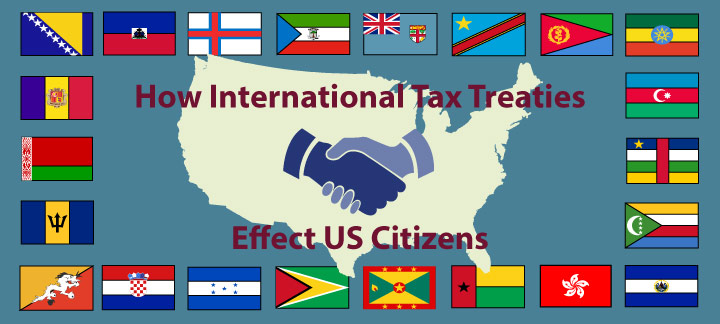The Effects of Treaties on U.S. Citizens and Residents
Under international tax treaties, cooperating nations provide certain tax concessions to each other’s residents. The U.S. is a party to many bilateral income tax treaties. As a result of such agreements, a U.S. citizen residing in the United States may benefit from reduced taxation or exemption from taxation on income from foreign sources. Similarly, nonresident aliens and foreign corporations enjoy rate reductions and exemptions from U.S. taxation when they are residents of another country that is party to a tax treaty with the U.S.
Enforceability of Income Tax Treaties Against the U.S.
However, U.S. taxpayers are limited in their ability to enforce concessions against the United States itself, as the U.S. retains the right to tax its own citizens “as if the Convention had not come into effect” (1). For example, under this “savings clause” a U.S. citizen residing in a country such as France cannot claim the reduced tax on dividends allowed by the United States to residents of France. Instead, the U.S. citizen must still pay whatever taxes are due under U.S. tax laws. At the same time, savings clauses are subject to some limitation based on certain treaty provisions. Under the U.S. Model Income Tax Treaty, U.S. citizens can benefit from some income tax treaty provisions against the U.S. The potential benefits under the U.S. Model Income Tax Treaty include an exemption for social security benefits by the tax treaty country (2). A common component of a U.S. income tax treaty is an agreement by the United States to give a credit to its residents and citizens for income taxes they pay to other countries. Under these provisions, the U.S. can provide that certain foreign taxes are automatically qualified for the foreign tax credit, thus relieving the U.S. taxpayer of the need to prove that the taxes qualify under § 901.
Deductions for Charitable Gifts Under Income Tax Treaties
Ordinarily, U.S. taxation laws provide a charitable gifts deduction to U.S. taxpayers only for charitable donations to U.S.-based charities (3). However, income tax treaties between the United States and Canada, Israel, and Mexico allow U.S. citizens to deduct contributions they make to charities organized in those countries.
How a Tax Attorney Can Help
If you are a U.S. taxpayer with financial interests in other countries, you may be able to avail yourself of the benefits of U.S. international income tax treaties. If you are unsure whether your tax situation may be impacted by an income tax treaty, you should consider consulting a tax attorney knowledgeable in international law.
The Tax Lawyer - William D Hartsock Tax Attorney Inc. has been successfully helping clients with tax issues related to their foreign assets since the early 1980s. Mr. Hartsock offers free consultations with the full benefit and protections of attorney client privilege to help people clearly understand their situation and options based on the circumstances of their case. To schedule your free consultation simply fill out the contact form found on this page, or call (858) 481-4844.
Tax Law References:
- U.S. Model Income Tax Convention of November 15, 2006, art. 1(4).
- U.S. Model Treaty art. 25(3).
- IRC § 170(c)(2).



Comments (0)